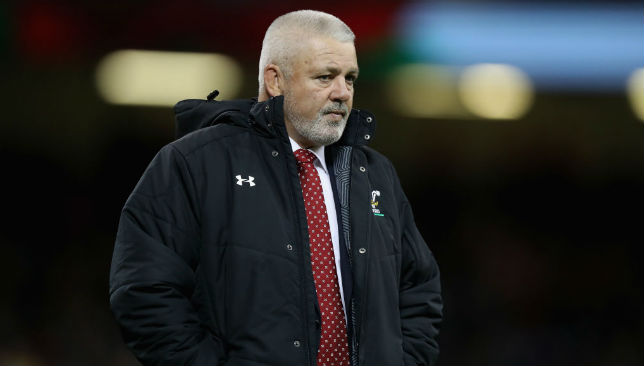
When Wales run out at Twickenham on Saturday, a decade under the stewardship Warren Gatland will come full circle.
On February 2 2008, Wales arrived at HQ with a new man in charge and the hope of a new dawn.
20 winless years at the home of English rugby, and an abject 2007 World Cup still a wound that was very much open, was enough to bring out the pessimist in even the most ardent of Wales fans.
A late salvo including tries from Lee Byrne and Mike Phillips and Wales were on their way to only their second Grand Slam in 30 years.
While the 2018 trip to London doesn’t have such a bleak backdrop, a below average showing in last year’s Six Nations couples with another autumn campaign blighted by an inability to beat Australia, or challenge the All Blacks, the optimism that has accrued in the last week is still somewhat unexpected.
The demolition job on what was supposed to be a rejuvenated and potentially title-challenging Scotland side, has brought back that sense of a new dawn in Welsh rugby.
New faces, a new style of rugby, and a new game plan may be in place but there is always one constant. Gatland himself.
Rarely has such a successful chief be so maligned – mainly outside Wales.
Even more rare is that person’s ability to take criticism from all corners and remain so resolute and confident in not only himself but those around him.
One of the biggest sticks used to beat the Kiwi is Gatland-ball. A high-power brand of rugby, focused on crashing the ball up the middle of the field bringing in and tiring defences until they are ultimately beaten in submission.
Gatland-ball may not have been the most attractive way of playing the game but did it yield results? Absolutely. Six Nations titles, and World Cup semi and quarter finals have represented Wales most successful era in generations.
But those heady days seemed in the dim and distant past.
Four Six Nations campaigns have now passed since a Welsh victory, the longest barren period in Gatland’s tenure, and again it’s time for a change.
The clamour from the Welsh public has always been for an idealistic game of expansive passing, jinking backs, and highlight-reel tries in the corner.
Contrary to popular belief, that’s what Gatland wants too. But such is his hunger for victory he will forgo the plaudits of the purist and do what it takes to win – however ugly that may be.
Take a look at a Warren Gatland team-sheet and the style of play isn’t dictated by the ten – it’s dictated by 12.
Jamie Roberts had been a mainstay for years, and while he will undoubtedly go down as one of Wales’ greats – a creative set of hands is not something he was blessed with. That in itself cause limitations in a side’s play.
Track back to that first game at Twickenham and it was Gavin Henson in possession of the jersey, and say what you will about the shaven-legged one, but he had the hands of a concert pianist with a gift of playing in other and unlocking defences in a heartbeat.
Fast forward to autumn 2017 and Owen Williams at 12 and the move was made back to the more expansive and open style. It may not have yielded the immediate results demanded by the Welsh public but the step was taken.
While the Gloucseter man wasn’t in the squad for the game against Scotland, Hadleigh Parkes was.
In Parkes, Wales have a centre the like of which Wales have not seen since the days of Henson. An all-rounder who can time and execute a pass, defend like a Trojan and also cross the whitewash as he proved with a brace on his debut against South Africa.
While there may be 10 Scarlets starting for Wales on Saturday, it’s unfair to say that it is simply the excellent work of Stephen Jones and Wayne Pivac in west Wales that is the driving force in the new-look Wales.
This form still has to be translated onto the international stage, and for that Gatland and his team have to be given credit.
Ultimately this Six Nations campaign will be a barometer for change, and just where Wales stand 18 months out from the next World Cup.
Can they hoist the trophy in March? Possibly. Trips to Twickenham and the Aviva will present much sterner tests than that of Scotland.
What matters to Gatland now is the preparation and development of the side leading up to next year’s World Cup and that situation looks a lot more promising.
A new dawn in Welsh rugby is on the horizon, and once again Warren Gatland is a man you question at your peril.